Artificial Intelligence and The Future of Humans
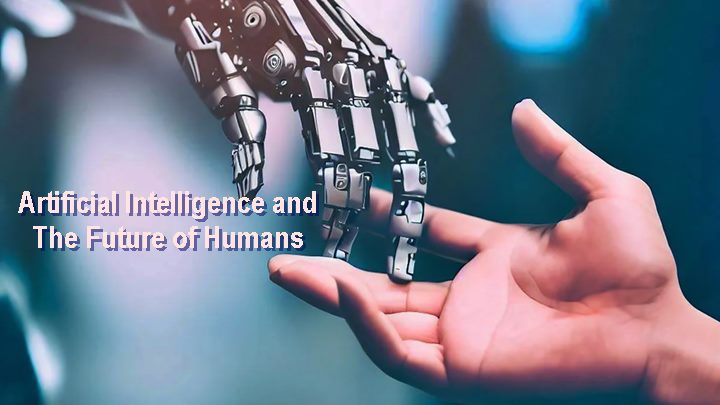
Artificial Intelligence (AI) has emerged as a groundbreaking technology that is revolutionizing industries, transforming the way we live and work, and shaping the future of our society. From self-driving cars and virtual assistants to advanced medical diagnostics and personalized recommendations, AI is permeating various aspects of our lives. In this comprehensive article, we will explore the fascinating world of AI, including its history, underlying technologies, current applications, potential, and the ethical considerations associated with its adoption.
Artificial intelligence (AI) is rapidly advancing, and its impact on the future of humanity is a subject of great interest and concern. The potential benefits of AI are immense, ranging from increased efficiency and productivity to enhanced decision-making and improved quality of life. However, there are also challenges and ethical considerations that need to be addressed to ensure a positive future for humanity. This essay explores the opportunities and challenges posed by AI, highlighting its potential impact on various aspects of human life.
AI refers to the ability of machines to simulate human intelligence and perform tasks that typically require human cognitive abilities.
Historical Context
The concept of AI dates back to the 1950s when pioneers like Alan Turing and John McCarthy laid the foundation for the field. Since then, AI has experienced significant advancements and breakthroughs.
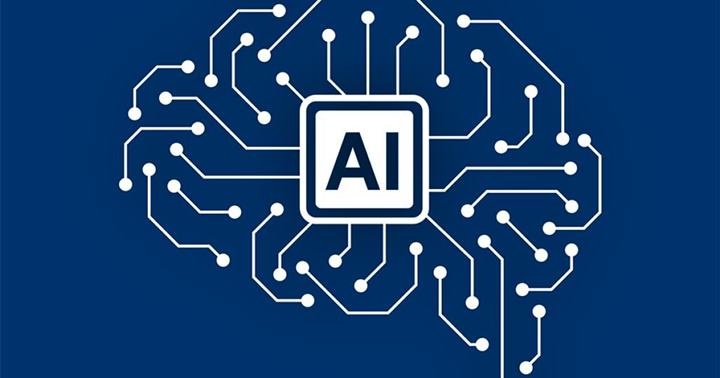
Key Components of Artificial Intelligence
- Machine Learning: ML allows machines to learn from data and improve their performance over time without being explicitly programmed.
- Natural Language Processing: NLP enables machines to understand and interpret human language, facilitating communication between humans and machines.
- Computer Vision: Computer vision enables machines to perceive and interpret visual information, leading to advancements in areas such as facial recognition and object detection.
- Robotics: Robotics combines AI with mechanical engineering, enabling machines to interact physically with their environment.
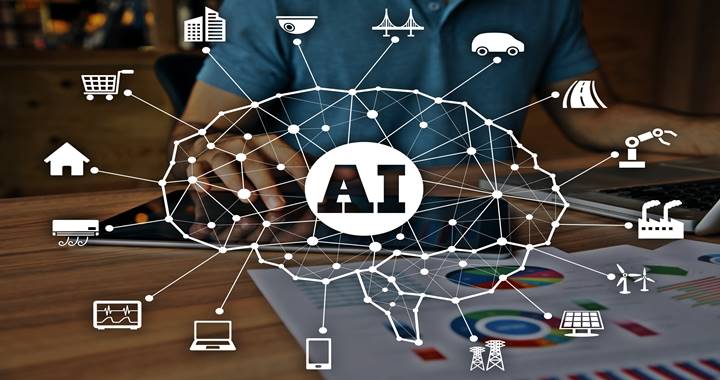
Applications of Artificial Intelligence
1. Healthcare:
• Medical Diagnostics: AI is being used to analyze medical images, detect diseases, and assist in diagnosis, leading to more accurate and timely treatment.
• Drug Discovery: AI algorithms are aiding in the discovery of new drugs and speeding up the research and development process.
• Personalized Medicine: AI is facilitating the development of personalized treatment plans by analyzing patient data and genetic information.
2. Finance:
• Fraud Detection: AI algorithms can analyze vast amounts of financial data to identify fraudulent patterns and prevent financial crimes.
• Algorithmic Trading: AI-powered trading systems use sophisticated algorithms to make investment decisions based on market trends and patterns.
• Risk Assessment: AI models help financial institutions assess creditworthiness and manage risks by analyzing credit histories and financial data.
3. Transportation:
• Self-Driving Cars: AI plays a pivotal role in autonomous vehicles, enabling them to perceive their environment, make decisions, and navigate safely.
• Traffic Management: AI systems are used to optimize traffic flow, reduce congestion, and improve transportation efficiency.
• Logistics and Supply Chain: AI is employed to optimize logistics operations, route planning, and inventory management.
4. Customer Service:
• Chatbots and Virtual Assistants: AI-powered chatbots and virtual assistants provide instant customer support, answer queries, and assist with various tasks.
• Personalized Recommendations: AI algorithms analyze user data to provide personalized recommendations for products, services, and content.
5. Education:
• Adaptive Learning: AI-based educational platforms adapt to individual students’ learning styles, providing personalized learning experiences.
• Intelligent Tutoring: AI tutors help students with personalized feedback, assessments, and interactive learning materials.
6. Agriculture:
• Crop Monitoring: AI systems use drones and sensors to monitor crop health, detect diseases, and optimize irrigation and fertilizer usage.
• Yield Prediction: AI models analyze historical data and environmental factors to predict crop yields, helping farmers make informed decisions.
• Precision Farming: AI-based technologies assist farmers in optimizing resource allocation and improving productivity through targeted interventions.
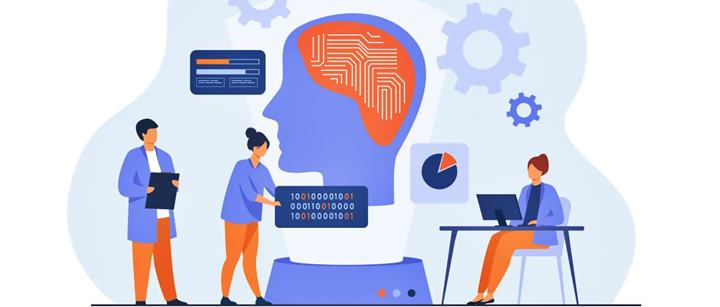
Impact of Artificial Intelligence
- Automation and Job Displacement: One of the primary concerns surrounding AI is the potential for job displacement. As AI systems become more advanced, they can automate repetitive and mundane tasks, leading to increased efficiency and productivity in industries such as manufacturing, logistics, and customer service. However, this automation could also result in job losses for human workers in these sectors. To mitigate this impact, it is crucial to focus on retraining and upskilling the workforce to adapt to the changing job landscape. Additionally, new job opportunities may arise as AI creates new industries and requires human oversight and management.
- Enhanced Decision-Making: AI has the potential to revolutionize decision-making processes by processing vast amounts of data and providing valuable insights. In fields such as healthcare, finance, and transportation, AI algorithms can analyze complex data patterns, identify trends, and make predictions with high accuracy. This can lead to improved diagnosis and treatment plans in healthcare, more effective financial predictions, and optimized transportation systems. However, it is essential to ensure that AI algorithms are transparent, explainable, and unbiased to maintain trust and ethical decision-making.
- Economic Impact: The widespread adoption of AI technologies can have a significant economic impact. Companies that successfully integrate AI into their operations can gain a competitive advantage by improving efficiency, reducing costs, and developing innovative products and services. This, in turn, can drive economic growth and create new job opportunities. However, there is a risk of exacerbating social inequalities if the benefits of AI are not distributed widely. It is essential to prioritize inclusive policies, access to AI education, and support for small and medium-sized enterprises to ensure that the economic benefits reach all sections of society.
- Ethical Considerations: The development and deployment of AI raise important ethical considerations. Algorithmic bias, privacy concerns, and the potential misuse of AI systems are some of the key challenges that need to be addressed. AI algorithms can inadvertently perpetuate biases present in the data used for training, leading to discriminatory outcomes. It is crucial to invest in research and development of algorithms that are fair, transparent, and accountable. Additionally, the responsible collection and use of personal data, as well as the protection of privacy rights, are critical to maintaining trust in AI systems. Stricter regulations and standards are needed to address these ethical concerns and ensure that AI benefits society as a whole.
- Collaboration Between Humans and AI: Rather than replacing humans, AI has the potential to augment human capabilities and facilitate collaboration between humans and machines. AI systems can assist humans in complex tasks, provide personalized recommendations, and enhance creativity. For example, in healthcare, AI can assist doctors in diagnosing diseases by analyzing medical images, allowing healthcare professionals to make more accurate and timely decisions. However, striking the right balance between human judgment and AI assistance is crucial. Humans bring unique qualities such as empathy, intuition, and ethical reasoning, which are essential in many decision-making contexts. Human oversight and accountability are necessary to prevent undue reliance on AI systems and ensure the ethical and responsible use of AI technologies.
- Concerns about Superintelligence: Some researchers and thinkers express concerns about the potential development of superintelligent AI systems that surpass human intelligence. While this scenario is still speculative, it raises important questions about the control and safety of AI systems. Ensuring that AI systems are aligned with human values and priorities, and developing robust safeguards to prevent unintended consequences, is critical. Open research, collaboration, and international cooperation are vital to address these concerns and promote responsible AI development.
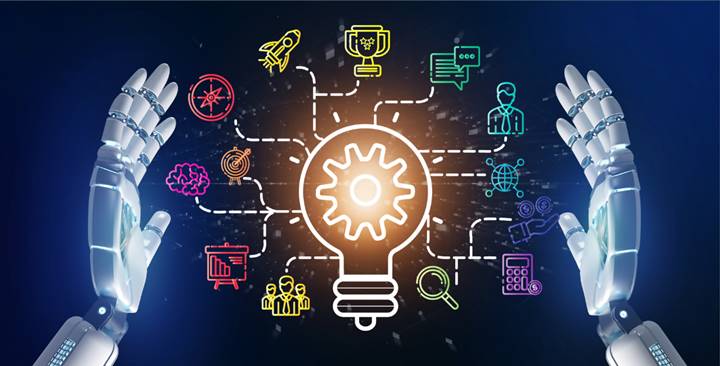
The Future of Artificial Intelligence
1. Advancements in AI Research:
• Reinforcement Learning: AI systems capable of learning through trial and error are advancing the capabilities of autonomous agents and robotics.
• Deep Learning: Deep neural networks are revolutionizing pattern recognition, language processing, and image analysis, leading to breakthroughs in various fields.
• Quantum Computing: The integration of AI and quantum computing holds the potential for solving complex problems and accelerating AI research.
2. Human-AI Collaboration:
• Augmented Intelligence: AI systems can complement human intelligence, assisting in complex decision-making and providing valuable insights.
• Ethical AI Design: The focus will be on developing AI systems that are transparent, explainable, and accountable, ensuring they align with human values and ethics.
3. Challenges and Considerations:
• Regulation and Governance: Establishing regulatory frameworks and ethical guidelines for the responsible development and use of AI is essential.
• Workforce Adaptation: The adoption of AI will require upskilling and reskilling the workforce to adapt to the changing job landscape and ensure a smooth transition.
Artificial intelligence presents both opportunities and challenges for the future of humanity. While automation and job displacement raise concerns about the future of work, AI can also enhance decision-making, drive economic growth, and improve quality of life. However, ethical considerations such as algorithmic bias, privacy, and the responsible use of AI must be addressed. Collaboration between humans and AI can unlock the full potential of AI systems, with humans providing essential qualities like empathy and ethical reasoning. By proactively addressing these challenges, investing in AI education and research, and ensuring inclusive policies, we can shape a future where AI works in harmony with humanity, benefitting society as a whole.
Writer: Tahsin Ahmed
